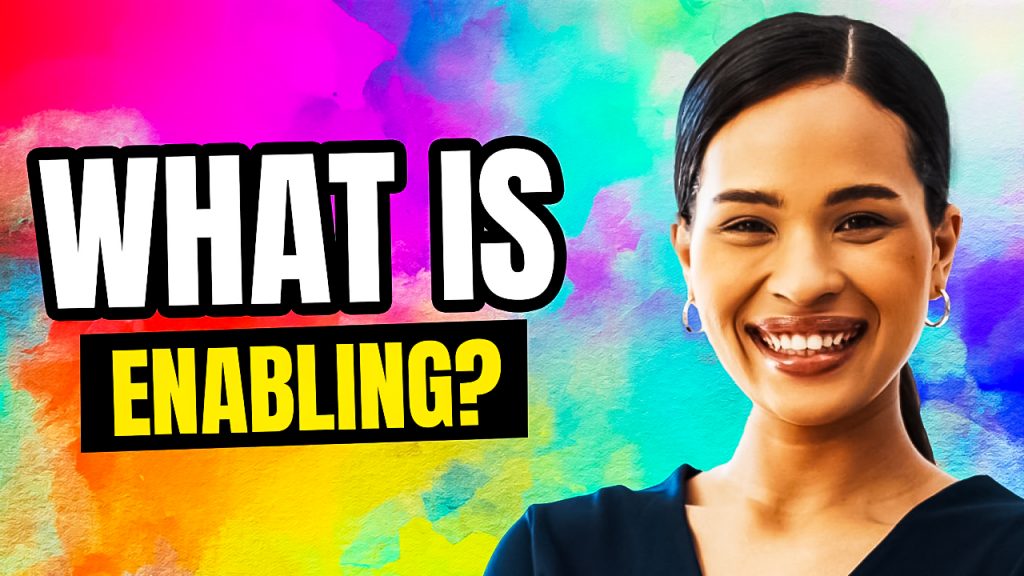
Enabling is a term that has been used to describe a wide range of behaviors and actions that support or facilitate certain behaviors or outcomes. The term has been used in many different contexts, including addiction, mental health, and other areas of social and behavioral sciences. At its core, enabling is the act of supporting or facilitating someone else’s harmful or problematic behavior, typically without realizing the negative consequences of doing so.
In the context of addiction, enabling is often defined as any behavior that allows an addict to continue using drugs or alcohol without experiencing the full consequences of their actions. For example, if a parent constantly bails their child out of legal trouble or financial difficulties caused by their addiction, they are enabling their child’s destructive behavior. Similarly, if a spouse calls in sick for their partner because they are too hungover to go to work, they are enabling their partner’s addiction.
In mental health, enabling can take many forms. For example, a person with depression may rely on their partner to take care of all of their responsibilities, such as paying bills and doing household chores. While this may seem like a kind gesture, it can actually prevent the person with depression from seeking treatment and taking responsibility for their own well-being. Similarly, a parent of a child with anxiety may shield their child from all sources of stress or anxiety, inadvertently preventing them from developing coping skills and becoming more resilient.
Enabling can also occur in the workplace, where it can manifest as micromanaging or overprotective behavior. For example, a manager who constantly steps in to fix their employee’s mistakes instead of allowing them to learn from their errors is enabling their employee’s incompetence. This can create a toxic work environment and lead to resentment and disengagement.
There are many reasons why people engage in enabling behavior. Sometimes, it is out of a sense of love or loyalty. Parents may feel that they are protecting their child by shielding them from the consequences of their actions, while spouses may feel that they are helping their partner by taking on more responsibilities. In other cases, enabling can be a manifestation of codependency, where a person’s sense of self-worth is tied to their ability to care for and support others.
Regardless of the motivation, enabling is rarely helpful in the long run. By shielding others from the consequences of their actions, enabling can perpetuate destructive behavior patterns and prevent people from seeking help or making positive changes in their lives. Enabling can also be emotionally and psychologically draining for the enabler, leading to feelings of resentment, anger, and burnout.
To break the cycle of enabling, it is important to recognize when enabling behavior is taking place. This can be difficult, as enabling can sometimes appear to be helpful or supportive on the surface. However, there are some warning signs to look out for. If you find yourself constantly rescuing others from the consequences of their actions, taking on
more responsibility than you can handle, or feeling like you are sacrificing your own well-being for the sake of others, it may be a sign that you are engaging in enabling behavior.
Once you have identified the behavior, the next step is to set boundaries. This can be a difficult process, as it may require saying “no” to someone who is used to getting their way. However, it is important to remember that setting boundaries is not a sign of selfishness or lack of compassion. Rather, it is a way of protecting your own well-being and encouraging others to take responsibility for their own actions.
When setting boundaries, it is important to be clear and consistent. This may involve having a difficult conversation with the person you are enabling, where you explain your concerns and let them know what you are willing and unwilling to do.
This Post is Brought To You By BetterHelp